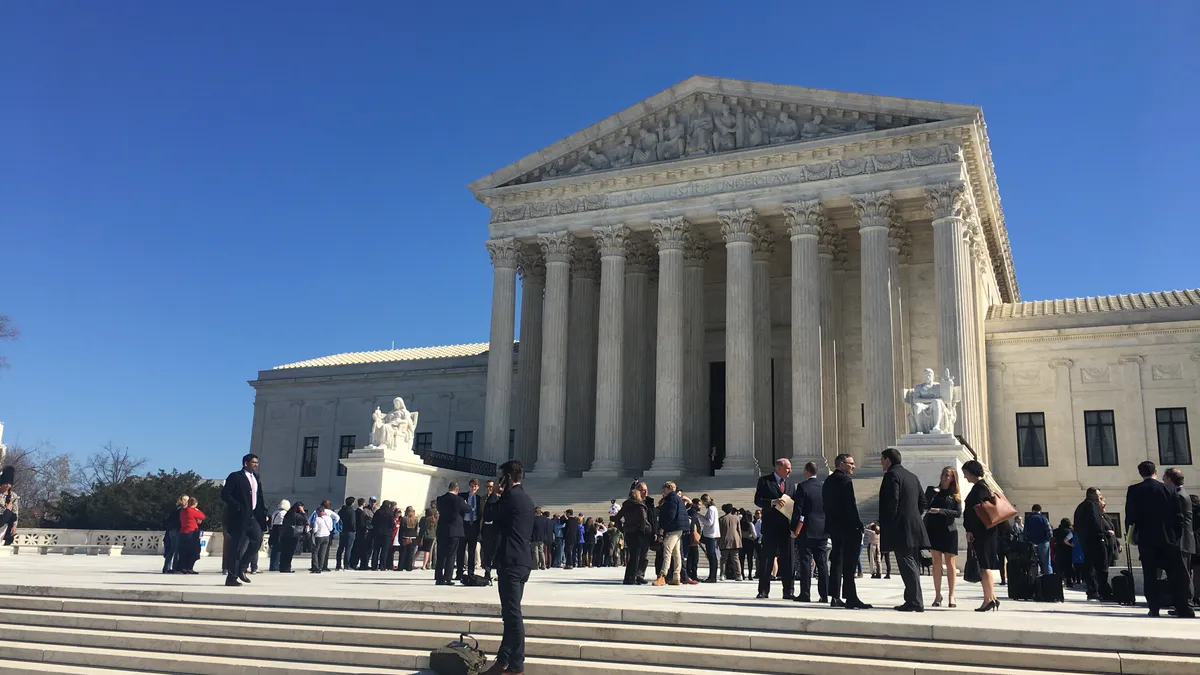Dive Brief:
- There are several employment-related topics that could see U.S. Supreme Court review next term, according to Carol Miaskoff, associate legal counsel for the U.S. Equal Employment Opportunity Commission (EEOC). Topics related to age, equal pay and gender identity could all be on the table, Miaskoff told attendees at EEOC's EXCEL Training Conference Thursday.
- The Supreme Court last year declined to take up Villarreal v. R.J. Reynolds Tobacco Co. from the 11th U.S. Circuit Court of Appeals, a ruling that determined that job applicants are not protected by the Age Discrimination in Employment Act (ADEA). But an April decision from the 7th Circuit in Kleber v. CareFusion Corp. took the opposite position, holding that the law "protects both out-side job applicants and current employees." The developing split could prompt action from the High Court, Miaskoff said.
- In a somewhat controversial Equal Pay Act ruling, Rizo v. Yovino, the 9th Circuit said that employers cannot pay women less than men based on their salary history because it did not constitute "a factor other than sex." That case is "prime to go to the Supreme Court," Miaskoff said. And as for Title VII of the Civil Rights Act of 1964, EEOC v. R.G. & G.R. Harris Funeral Homes, a case questioning whether Title VII prohibits discrimination based on gender identity, also could show up next term.
Dive Insight:
Many of these cases underpin big employment law issues that affect employers across the country. Sexual orientation is the other "big story," Miaskoff said, though the issue was recently denied review by the Supreme Court. Cases continue to bubble up, however, including Zarda v. Altitude Express, Inc., in which the 2nd Circuit found that Title VII does indeed protect employees from discrimination based on sexual orientation. The employer at the center of that case on the issue has asked the High Court to again consider answering the question.
This past SCOTUS term saw a number of employer wins, including a decision that could weaken unions and another that approved collective action waivers. Many more cases were declined, however, including one on tip pooling, a case examining the length of Americans with Disabilities Act leave and another on rest break pay.
With the announced retirement of Justice Anthony Kennedy, President Trump has nominated Brett Kavanaugh to take his place. A conservative majority already rules on the court, so upcoming employment law decisions will not likely see much upheaval if he is confirmed.














